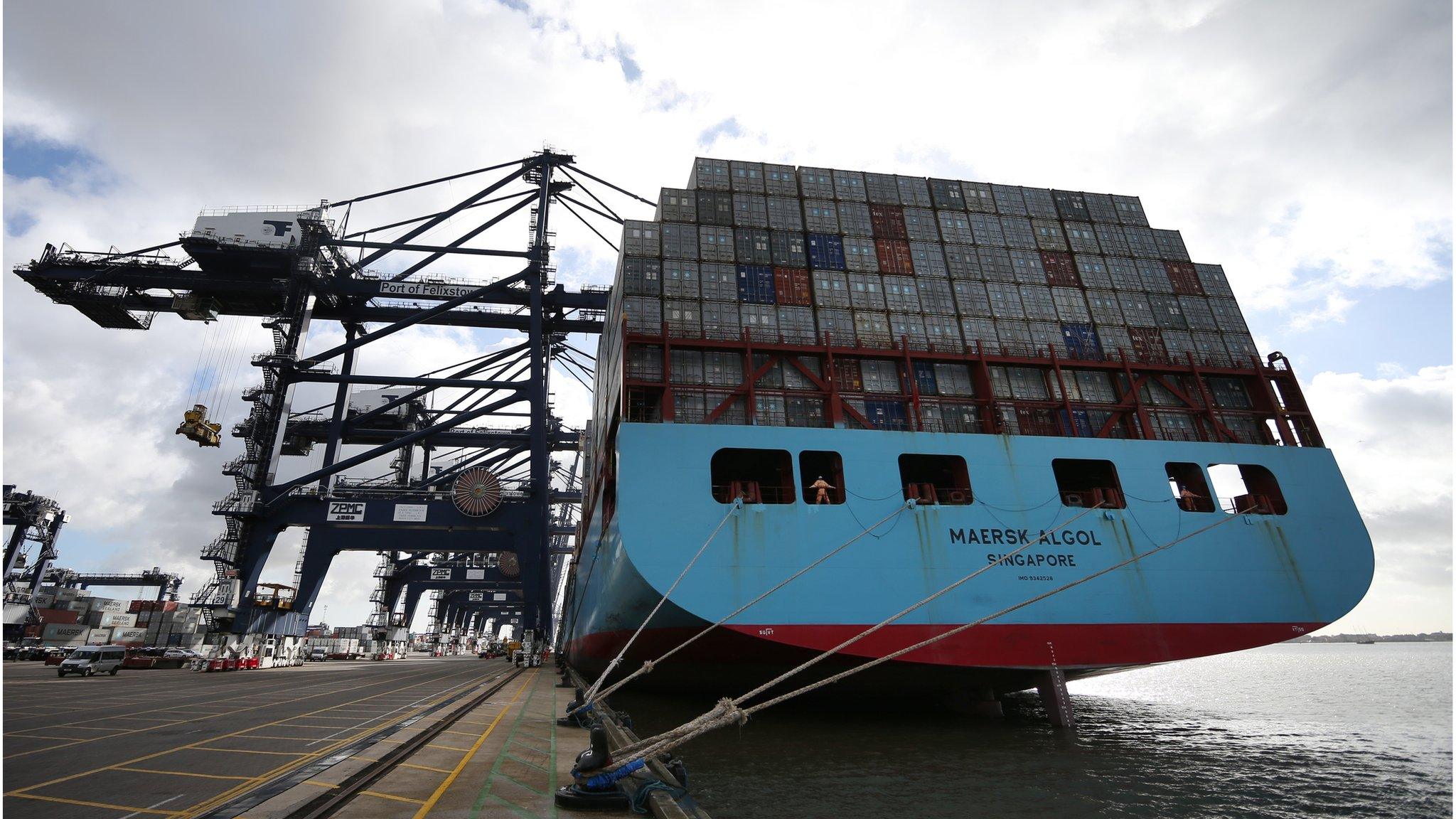Iceland government may revive EU membership debate
- Published
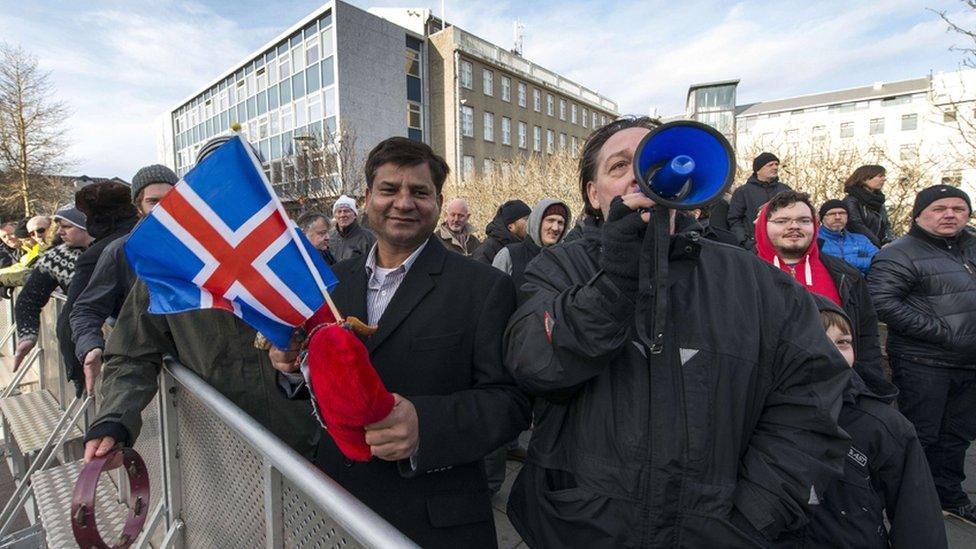
In 2014 many Icelanders wanted a referendum on whether to join the EU
Iceland's new three-party coalition government says it is willing to put the question of joining the EU back on the political agenda.
But it is uncertain whether MPs will vote on whether to hold a national referendum on EU membership.
The coalition platform, external says a vote will take place if the referendum issue is raised in the Althingi (parliament).
Iceland began EU accession talks in 2010, while the country was still reeling from the 2008 financial crash.
The talks were later shelved, however, amid much Euroscepticism in the Arctic island nation of 328,000.
Parties opposed to EU membership have 39 seats, out of the Althingi total of 63, Icelandic journalist Hjortur Gudmundsson reports.
The UK's Brexit vote has fuelled British interest in alternative models for trade with the EU, like Iceland's.
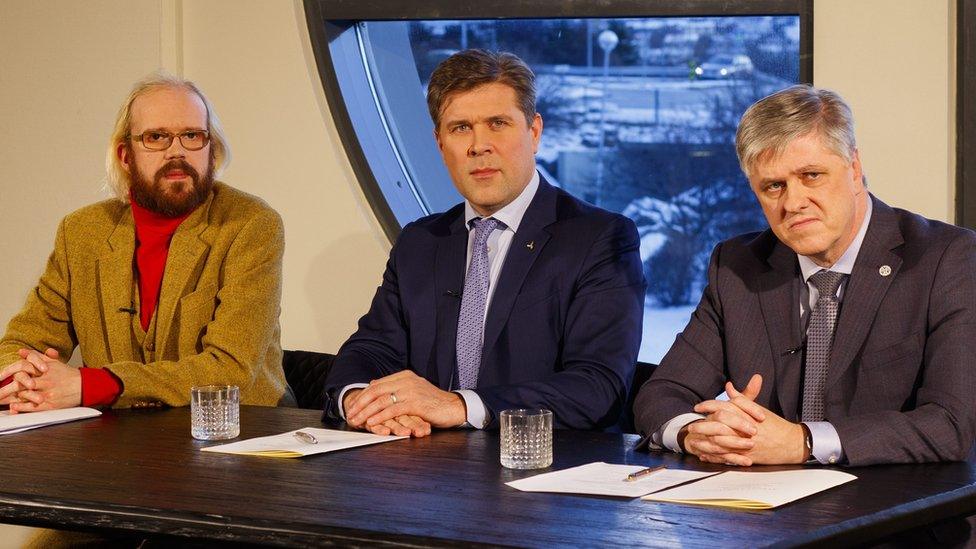
The new coalition: (L to R) Ottarr Proppe (Bright Future), Bjarni Benediktsson (Independence Party), Benedikt Johannesson (Reform party)
The centre-right government is led by Bjarni Benediktsson, who heads the conservative Independence Party. He was previously finance minister.
Close EU ties
The prime minister's coalition partners are Restoration and centrist Bright Future, whose leader Ottarr Proppe is a former punk rocker.
Tuesday's coalition deal followed weeks of political wrangling after the 29 October general election.
Iceland is already deeply integrated with the EU - it is a member of the Schengen passport-free zone and is in the single market, though its agriculture and fisheries are excluded.
Iceland, Norway and Liechtenstein are in both the European Free Trade Association (EFTA) and the European Economic Area (EEA).
Iceland's status means it could quickly fulfil the requirements of EU membership - unlike the Balkan candidates and Turkey.
Correction, 16 January 2017: This story has been amended to make clear that a vote will be held only if the EU issue is raised in parliament. Figures on Althingi seats have also been added for further clarity.
- Published25 October 2024
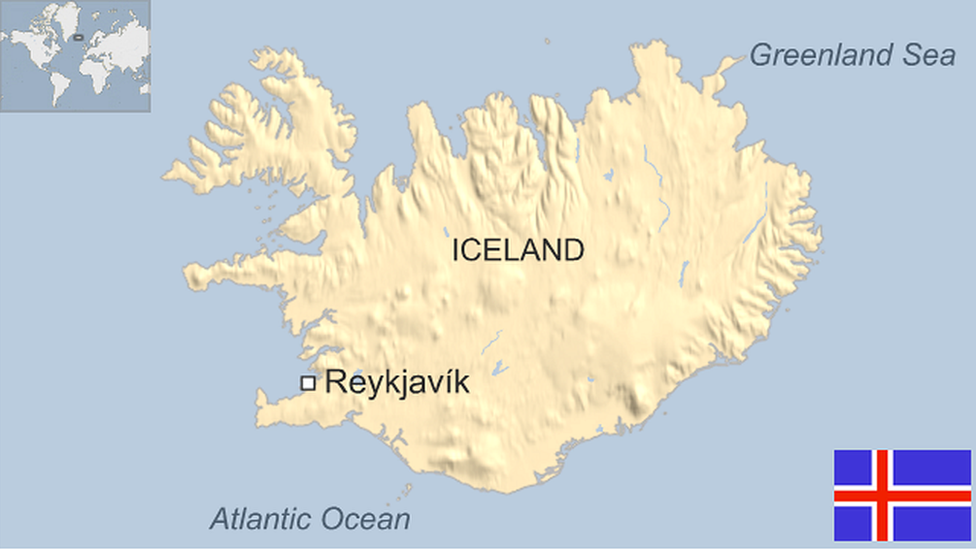
- Published21 June 2016
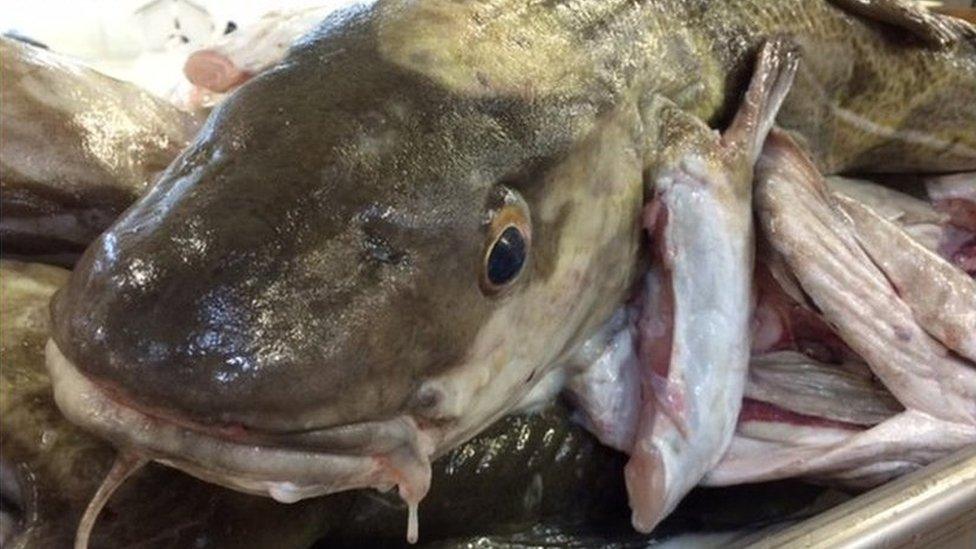
- Published12 March 2015
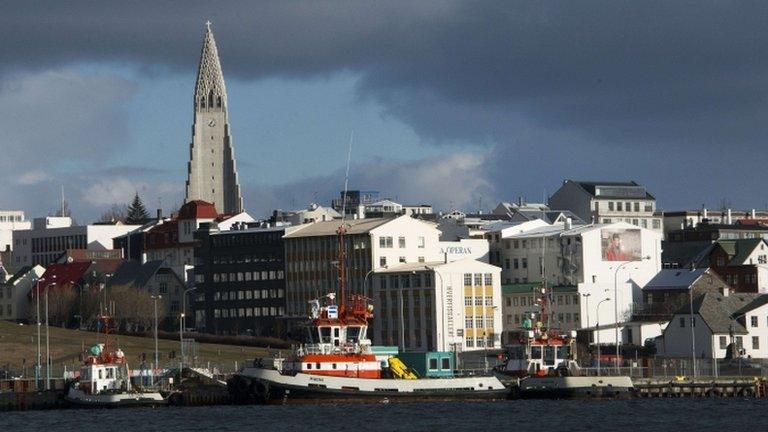
- Published14 August 2017
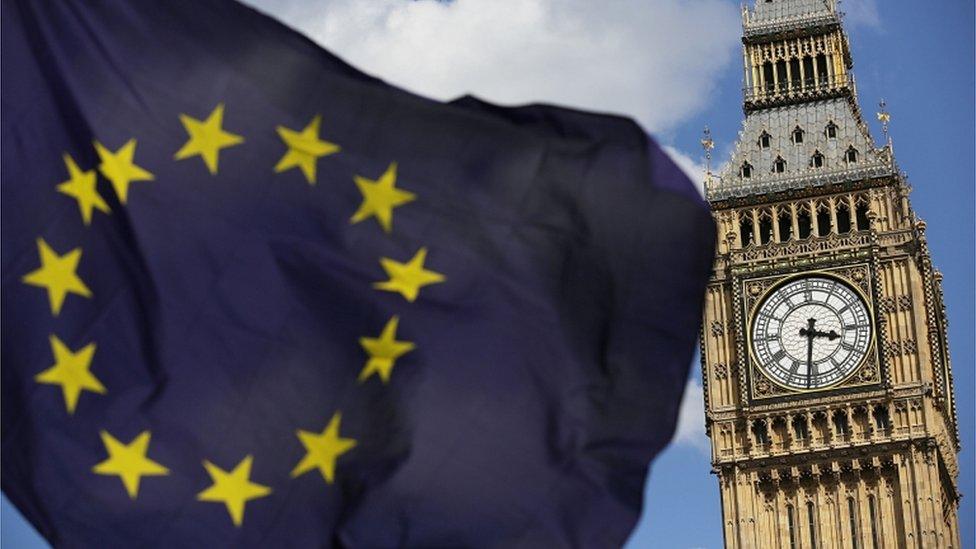
- Published27 June 2016
